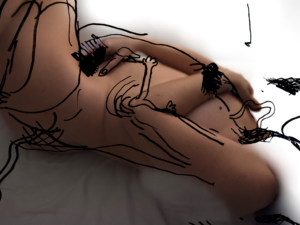After 20 years of war, the Taliban have swept to victory in Afghanistan.
In a lightning offensive, they swallowed dozens of cities in a matter of days. For women in Afghanistan, the Taliban takeover of their home country puts their rights and lives to high risks.
Women often suffer the most from wars – they experience trauma, sexual violence, the death of their loved ones and more. When a conflict is finally over, the world’s attention will continue to move on and it will be up to the women left behind to rebuild their families and communities. Women for Women International supports women who live in some of the most dangerous places on earth. One being Afghanistan at the moment.
When the islamist grouping last held power in the country between 1996 and 2001, women and girls were denied education and any employment opportunities. They couldn’t attend school nor be seen in public without male escort and their bodies fully covered – punishment for disobedience were severe, ranging from physical violence to execution. But since 2001 there has been an improvement in terms of women’s rights, their bodily autonomy and eduction (more girls have been enrolled in school). However, with the Taliban now in full control of Afghanistan once again, these progresses are threatening to disappear quickly and women in the country face particular risks to their lives.
Nearly 80% of the Afghan population, that has been forced to flee their home since the end May, have been women and children, according to the U.N. refugee agency. Furthermore, the number of women and children injured or even killed increased also in May and June, around the same time international troops withdrew their remaining soldiers from the country.
Women for Women International, a nonprofit humanitarian organization, made it their mission to provide female survivors of war, civil strife and other conflicts with the tools and resources to move from crisis and poverty to stability and self-sufficiency, therby promoting viable civil societies. They support socially excluded women emerging from war and community violence through a multi-layered core program of direct aid and sponsorship, rights-based education, and economic development. The participating women enroll in a one-year program, where they learn how to make and save money, improve their family’s health, and how their voices can be heard – at home and in their community. Since 1993, the organization has helped more than half a million marginalized women who survived wars in Afghanistan, Bosnia and Herzegovina, the Democratic Republic of the Congo, Iraq, Kosovo, Nigeria, Rwanda and South Sudan. The „Stronger Women Stronger Nations Program“ has been supporting marginalized Afghan women since 2002 with cash transfers, mental health counseling and vocational training and Women for Women International has reached more than 120,000 women in Afghanistan over the past few decades.
„We observe the current, rapidly changing developments very closely. Our colleagues are safe. We are very proud of our team in Afghanistan and the work our colleagues do for women and their families across the country,“ states the organization. „Our colleagues on site are still confident that we can continue to support our participants and their families as best we can, in view of our long-term cooperation with communal and religious authorities and our ongoing commitment to men and women. We are currently doing everything we can to get visas and to support our teams in leaving and arriving at a safer place – because women’s rights activists are now particularly at risk under the Taliban regime because of their courageous efforts. Our programs in Afghanistan have been paused for security reasons, but we hope to be able to resume as soon as possible – adapted to rapidly changing circumstances.“
As part of the campaign to support women at risk, Women for Women International collects donations aimed at responding to the events in Afghanistan. Including adapting the „Stronger Women Stronger Nations program”, adjusting the program to the current situation, and providing support flow from participants in the country or from refugees who have been forced to leave the country.
Find all further information on the the current situation on www.womenforwomeninternational.de and help today.
Donate now!
All Images: Curtesy of Women for Women International
Words by Annika Duda



